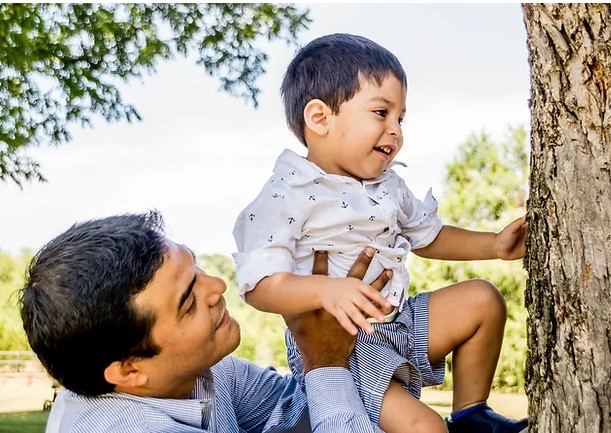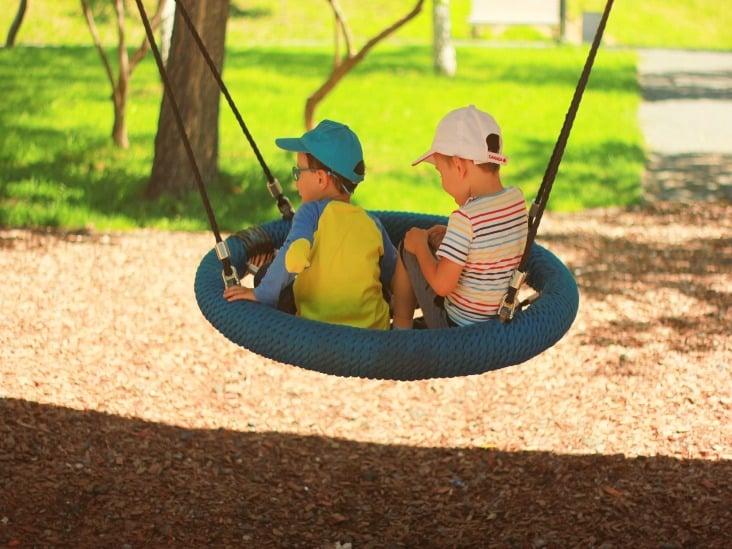In today’s fast-paced digital age, children often find themselves immersed in screens, disconnected from the wonders of the natural world. However, for children on the autism spectrum, the benefits of outdoor playtime are particularly profound. Beyond the joy and freedom it brings, outdoor play fosters cognitive awareness, enhances coordination, promotes social integration, strengthens physical abilities, and offers a refreshing dose of fresh air. This article explores the transformative power of outdoor play for children on the spectrum, shedding light on its wide-ranging advantages.

Cognitive Awareness:
Outdoor play provides a multisensory experience that stimulates cognitive development for children on the spectrum. Whether they are exploring a forest, building sandcastles on the beach, or observing the intricacies of a butterfly, nature offers an abundance of opportunities for curiosity and learning. Research suggests that exposure to natural environments can improve children’s attention span, problem-solving skills, and overall cognitive abilities. By engaging with their surroundings, children on the spectrum can develop a heightened sense of spatial awareness, pattern recognition, and a deeper understanding of cause and effect.
Coordination and Motor Skills:
Physical activities outdoors offer invaluable opportunities for children on the spectrum to enhance their coordination and motor skills. Simple acts like climbing trees, riding bicycles, or playing catch can help improve balance, body awareness, and fine motor skills. Engaging in unstructured play in natural settings provides a dynamic environment that challenges and strengthens their physical abilities. Through these activities, children on the spectrum can develop better control over their bodies, leading to improved hand-eye coordination, posture, and overall motor skills.
Integration with Others:
Outdoor play fosters social integration, enabling children on the spectrum to interact and connect with their peers. Shared outdoor spaces provide a neutral ground for children to engage in spontaneous play, fostering friendships and promoting social development. Collaborative activities like building forts or playing team sports encourage cooperation, turn-taking, and communication skills. Additionally, outdoor play often involves imaginative play, where children can express their creativity, share ideas, and engage in pretend scenarios, further facilitating social interaction and empathy.
Strength and Well-being:
Outdoor playtime is a natural way for children on the spectrum to improve their physical strength and overall well-being. Engaging in physical activities, such as running, jumping, or playing sports, helps develop muscle strength, cardiovascular health, and promotes an active lifestyle. Regular exposure to sunlight also supports vitamin D production, benefiting bone health and immune function. Moreover, spending time outdoors has been linked to reduced stress levels and improved mood, which can have a positive impact on the emotional well-being of children on the spectrum.

Fresh Air and Sensory Benefits:
The sensory-rich environment of outdoor play provides a wealth of stimuli that can be especially beneficial for children on the spectrum. Natural settings offer a variety of sounds, textures, smells, and visual cues that engage and stimulate the senses in unique ways. From feeling the grass under their feet to hearing birdsong, the outdoor environment allows children to experience sensory inputs
that can enhance their sensory processing abilities. This exposure to diverse sensory stimuli can help children on the spectrum develop coping mechanisms for sensory sensitivities, leading to improved self-regulation and overall sensory integration.
For children on the autism spectrum, the benefits of outdoor play extend far beyond mere entertainment. By engaging in outdoor activities, children can develop cognitive awareness, enhance coordination and motor skills, foster social integration, improve physical strength, and experience the refreshing benefits of fresh air and sensory stimuli. The transformative power of outdoor play offers a holistic approach to supporting the overall well-being and development of children on the spectrum, unlocking their full potential in a world brimming with natural wonders. As we recognise the immense benefits, let us ensure that every child, regardless of their abilities, has the opportunity to enjoy the enriching experiences of outdoor play. By embracing and promoting outdoor play for children on the spectrum, we can create inclusive environments that nurture their growth, development, and happiness, allowing them to thrive in both their physical and emotional well-being.
